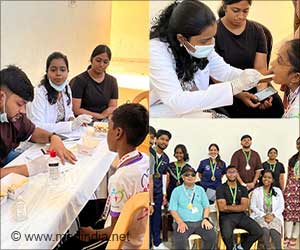The low numbers of organ donors in Australia is an ongoing problem according to Australia’s leading organ donor advocacy organizations.
In the latest edition of the Medical Journal of Australia (MJA) three letters to the editor address some of the issues surrounding organ donation in Australia.The first looks at organ donation following cardiac death, the second the impact of public education campaigns on organ donor rates, and the third the participation of prisoners in organ donation programs.
Dr Deepak Bhonagiri and his colleague, Patricia Wills, of the LifeLink Organ and Tissue Donation Network, suggest organ donation after cardiac death could help increase donation rates.
Cardiac death following planned withdrawal of life support occurs in 60 per cent of all Intensive Care Unit deaths, says Dr Bhongiri.
“Permission for organ donation is required before withdrawal of life support so donor organ teams can be available.”
Dr Bhongiri says guidelines for such cases and education of organ donation staff would increase the organ donation pool.
Advertisement
“One nearly universal strategy in attempting to raise donation rates has been to encourage individuals to register their wishes about donation,” says Dr Lawlor.
Advertisement
“Generalised education campaigns are limited in that they encourage action without addressing fears and concerns,” says Dr Lawlor.
Organ donation by prisoners is one solution to the low number of organ donors in Australia put forward by NSW researchers in their letter to the MJA.
Associate Professor Michael Levy, Director of the Sydney Centre for Health Research in Criminal Justice, and his colleague, Ms Elizabeth Magee, of Justice Health in Sydney, have suggested that prisoners should have the right to participate in organ donor programs.
However, the number of administrative, legal and operational hurdles makes them a difficult group of donors to access.
“Their precarious position to be able to provide informed consent needs to be protected,” says Assoc Prof Levy.
The high transmission rates of blood borne viruses in Australian prisons mean many organizations, such as the Australian Red Cross, exclude prisoners as donors.
The Medical Journal of Australia is a publication of the Australian Medical Association.
Source-AMA
SRI





